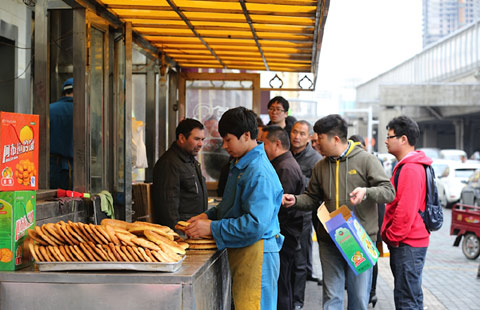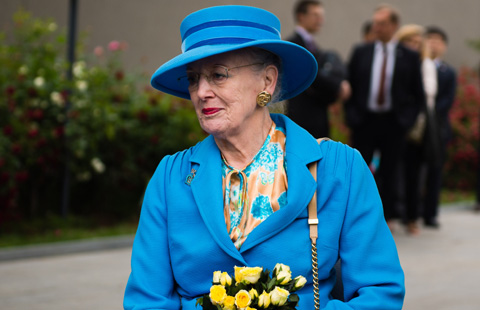Backgrounder: Most influential figures in Iraq's politics
Updated: 2014-04-30 16:19
(Xinhua)
|
|||||||||||
BAGHDAD - The Iraqi people will go to polling stations across the country on Wednesday to cast their ballots for the parliamentary elections, the first since the withdrawal of US troops from Iraq by the end of 2011.
The following are facts about some heavyweight Iraqi statesmen and figures of huge influences in the country's political life.
Prime Minister Nuri al-Maliki
Al-Maliki was born near Iraq's southern city of Hila. He joined the Islamic Dawa Party in the late 1960s. As former Iraqi leader Saddam Hussein extended crackdown on its opponents, al-Maliki fled the country in 1979 to take refuge in Iran and Syria. He came back to Iraq after the US-led invasion in 2003.
Al-Maliki became Iraq's prime minister in 2006 and was elected as secretary-general of the Islamic Dawa Party in 2007. He managed to retain his office as prime minister in 2010 though his State of Law Coalition came second in the parliamentary elections.
As a powerful Shiite statesman, al-Maliki leads his State of Law Coalition to run in the upcoming elections. Many local observers believe that the his coalition will possibly take the lead in the elections but still will be far away from securing a majority, as it faces severe challenges from other electoral entities, including rival Shiite blocs.
Parliament Speaker Osama al-Nujaifi
Al-Nujaifi was born in Iraq's northern city of Mosul in 1956. He worked in Iraq's electricity departments for 12 years after graduating from the University of Mosul in 1978. He was minister of industry in Iraq's Transitional Government from May 2005 to April 2006. He has been Iraq's parliament speaker since 2010.
A frequent critic of al-Maliki's policies, al-Nujaifi in April 2013 even called for the resignation of the government and for early elections to be held. In this year's elections, al-Nujaifi leads the United for Reform Coalition, whose supporters are mostly from Sunni areas.
President Jalal Talabani
Eighty-year old Talabani is a leading Kurdish statesman and founder of the Patriotic Union of Kurdistan, one of the two ruling parties in the autonomous Kurdish region. He has been Iraq's president since 2005.
In December 2012 Talabani suffered a stroke and was later sent to Germany for treatment. He has never come back to Iraq ever since. Known as Iraq's peacemaker, Talabani played a vital role in the country's unity. But his health condition and long absence have caused a decline in his influence.
Ammar al-Hakim
Al-Hakim is the head of the Islamic Supreme Council of Iraq (ISCI), a major Shiite party in Iraq. He was born in Najaf in south Iraq in 1971. He went into exile in Iran in 1979 with his father Abdul Aziz Al-Hakim, who was ISCI leader until his death in 2009.
Al-Hakim leads the Citizen Coalition to participate in this year's elections. The coalition adopts more moderate positions in its campaigns this time to expand its ranks and is considered a strong rival to the State of Law Coalition.
Grand Ayatollah Ali Husseini Sistani
Sistani was born in Iran's Mashhad in 1930. He is currently highest-ranking Shiite Muslim religious scholar in Iraq and lives in Najaf.
As an important political figure in post-invasion Iraq, he usually keeps himself out of normal politics in the country. But with his great influence over Iraqi Shiites, he has urged them to vote actively in the elections for a better future of Iraq.
Today's Top News
Russia's FM scolds West for imposing sanctions
Obama's trip not to achieve goals
Media mogul interested in Clippers
Director enjoys overseas success
Philippine pact gives US access to air, sea bases
Hunt resumes for bodies inside ferry
Ukrainian mayor wounded by gunfire
Alibaba IPO: Could be the biggest ever
Hot Topics
Lunar probe , China growth forecasts, Emission rules get tougher, China seen through 'colored lens', International board,
Editor's Picks

|

|

|

|

|

|





